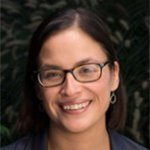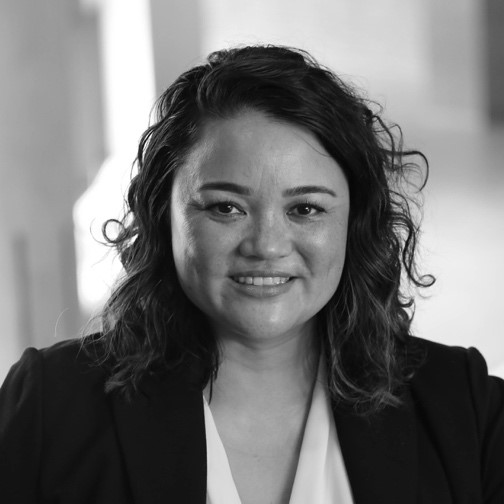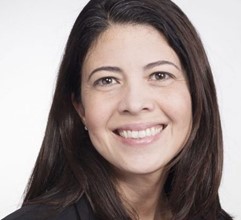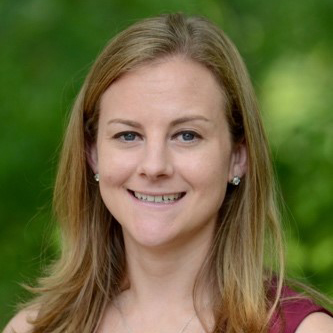April is Autism Awareness and Acceptance Month, a month dedicated to promoting true inclusion of individuals with autism spectrum disorder (ASD) and supporting them in reaching their full potential. In honor of this, we reached out to researchers aiming to improve outcomes for learners with ASD through Early Career Development and Mentoring grants from the National Center for Special Education Research (NCSER). We asked these principal investigators how they got involved in ASD research and about their current NCSER-funded work. Below is what they had to say.
Stephanie Shire, University of Oregon

I first interacted with young children with ASD as a teenage volunteer in a hospital playroom. As I learned more about children with special needs through summer camps and as an in-home aide, I grew more intrigued by the range of strengths and needs of these children. I found joy in finding ways to connect with children who had few or no words, but I lacked the tools to support their growth. This set me on a path to learn about the range of intervention practices and intervention science under the mentorship of Dr. Connie Kasari at the University of California, Los Angeles. My overall goal is to develop and test intervention programs to support the deployment of high-quality practices across the United States and abroad.
In the spirit of this goal, the purpose of my Early Career project, LIFT (Leveraging autism Intervention for Families through Telehealth), is to develop a technology-enabled version of an evidence-based, caregiver-mediated social communication intervention (JASPER; Joint Attention, Symbolic Play, Engagement, and Regulation) to be delivered by community-based early educators serving families of young children with ASD in rural areas. We are currently in Year 1 of our 4-year project. This development year is focused on the creation of the online JASPER intervention and training materials for early intervention and early childhood special education providers. Despite the demands of the pandemic, participating providers have engaged in training using video and role play and the majority are now able to put their skills to use with young children with ASD. We are currently conducting user testing of the online materials and preparing for next year’s randomized controlled trial.
Veronica Fleury, Florida State University

My first experience working with individuals with ASD was in a college course on behavior modification. The professor directed an ASD clinic that provided therapy using many of the strategies we discussed in class. I completed an internship in the clinic and was intrigued by the application of research techniques to promote prosocial behaviors for children with ASD. After college, I secured a full-time research assistantship at the University of Washington in a large ASD study focused on genetics and neurobiology. This was a pivotal experience because I realized this was not the kind of research that I wanted to pursue. The results of these efforts, while extremely valuable, did little to directly improve the lives of the participants. I realized that I wanted to be involved in applied research that allows for quicker uptake by practitioners and benefits for individuals with ASD. In order to be a good applied researcher, I needed practical experience working with children with ASD and their families. Although my entry into preschool special education teaching was initially a means to an end, it drew me in and further fueled my desire to serve children with disabilities. After this experience, I continued my graduate education and am now in an academic position that allows me to use science to address socially significant problems faced by individuals with ASD and their families.
The goal of Project START (Students and Teachers Actively Reading Together), which is part of my Early Career project, is to develop an adaptive shared reading intervention for preschool children with ASD using a sequential, multiple assignment, randomized trial (SMART) design. The results will help determine whether a full-scale efficacy study is worth pursuing for the intervention in its current form or whether additional refinement and testing is necessary.
Melanie Pellecchia, University of Pennsylvania

I became interested in research focused on improving implementation of evidence-based treatments for young children with ASD in under-resourced communities after many years of working with young children with ASD as a behavior analyst overseeing publicly funded early intervention programs. While working within a large, urban public-service system, I observed the widespread disparities in access to high-quality intervention and challenges with implementing evidence-based interventions to scale for young children with ASD. I sought to pursue an academic research career focused on improving these implementation challenges.
As part of my Early Career project, I am iteratively developing a toolkit of implementation strategies designed to improve parent coaching for young children with ASD in Part C early intervention systems. I am currently in my third year of this project and am incorporating information learned from a variety of sources to develop the toolkit, including direct observations of early intervention sessions, qualitative interviews identifying barriers and facilitators to using parent coaching within early intervention, literature on best practices in parent coaching and parent-mediated interventions for young children with ASD, and feedback from expert and community advisory panels. The toolkit will include a series of infographics, videos, and a community of practice housed within an online platform. This year I plan to conduct a pilot study of the toolkit to assess its feasibility and promise for improving the use of parent coaching for young children with ASD in Part C service systems.
Marisa Fisher, Michigan State University

Most people assume I got into the field because I grew up with an older brother with Williams Syndrome. But I didn't really think of myself as a sibling of a person with a disability and how that experience had shaped my life until I was in graduate school. The real reason I entered the field was because of three little boys with ASD with whom I worked as a behavior therapist when I was in college. What was originally a job became a passion for supporting people with ASD and other disabilities and finding better ways to teach skills and improve outcomes. I knew I wanted to go to graduate school, and it was my experience with these boys and my work at an ASD research lab that pushed me to pursue a doctorate in special education so that I could continue to work with people with disabilities.
Through my work with individuals with ASD, I began to realize the social struggles they and my brother experienced and became interested in studying experiences of social victimization and finding out why people with disabilities are more socially vulnerable than individuals without disabilities. The goal of my Early Career project is to do just that. A key part of this project involves assessing students’ self-reported bullying experiences. Although my original plan was to adapt and expand on existing measures, this didn’t result in a feasible assessment. Therefore, I turned my attention toward developing and testing an assessment that was appropriate for students with ASD and plan to use it to better understand the risk factors and consequences of bullying for these students. In general, my research is evolving from identifying and describing the risk factors to developing interventions to address those risk factors and reduce experiences of social victimization. My approach is to teach individuals with ASD to recognize and respond to situations and to evaluate ways to change attitudes toward individuals with ASD and improve social inclusion.
This blog was written by Alice Bravo, virtual intern for IES and doctoral candidate in special education at the University of Washington, and Katie Taylor, program officer for NCSER’s Early Career Development and Mentoring program.